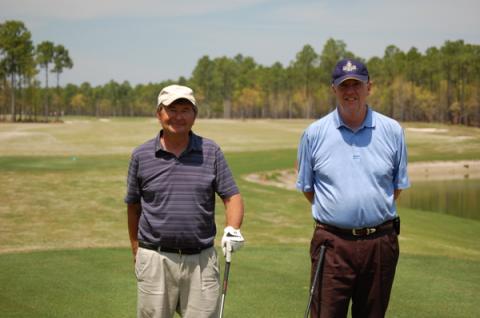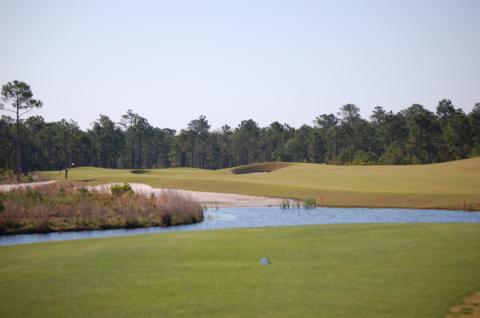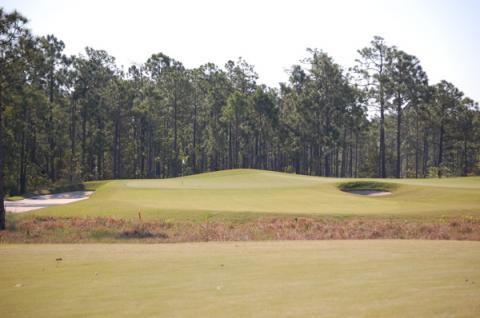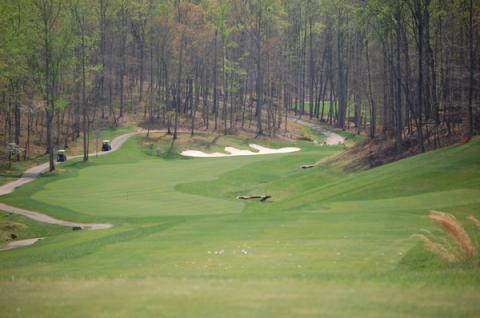
It takes length and pinpoint accuracy off the tee at Poplar Grove's par 5 3rd hole to get in place for one of the most difficult lay-up shots anywhere.
Without swinging a club, I've gotten to know the Poplar Grove Golf Club pretty well. I have been following my son and his Washington & Lee teammates around the Ed Carton/Sam Snead design in rural Virginia, about one half hour from Lynchburg. At 7,000 yards, the tees from which the Old Dominion Conference players are competing for the conference championship and an automatic bid to the NCAA nationals at Chateau Elan next month, the course is long but it also demands precision placement of irons. Indeed, the toughest shot on the course is not a tee shot or an approach to a green, although they are plenty tough. The most challenging shot of the first two days of the tournament is the lay-up shot at the par 5 3rd hole.
The drive from an elevated tee (see top photo) must squirt downhill at least 260 yards or so from the back tees in order to set up the delicate second shot to a narrow strip of fairway bounded by a stream in front and along the right, and cart path and woods to the left. The safest play is to about 160 yards from the green, but unless you are at the far left edge of the fairway, you won't be able to see the narrow green from there (see photo below). To hit the approach to 150 yards or closer demands nerves of steel because the fairway narrows even more at that point, with the same trouble still surrounding the small landing area. The green is narrow (see bottom photo); yesterday the back pin position suckered a number of the kids into third shots that skidded off the back edge, leaving a delicate short chip downhill to the pin.
cart path and woods to the left. The safest play is to about 160 yards from the green, but unless you are at the far left edge of the fairway, you won't be able to see the narrow green from there (see photo below). To hit the approach to 150 yards or closer demands nerves of steel because the fairway narrows even more at that point, with the same trouble still surrounding the small landing area. The green is narrow (see bottom photo); yesterday the back pin position suckered a number of the kids into third shots that skidded off the back edge, leaving a delicate short chip downhill to the pin.
Poplar Grove is in the town of Amherst and anchors a community of large and upscale homes whose prices start in the mid-six figures. A 1.1-acre lot with nice views down the 15th hole is on the market for $140,000. A 2,500 square foot single-family home on the 8th fairway is listed at $599,000. The club is open to the public but provides membership to residents. Only a relatively few homes have been built in the circa 2004 community, and it is hard to fathom the market for such big homes in such a rural setting. But the course is a delight, challenging and dramatic, with all the standard hazards in ample supply and framed against the Blue Ridge Mountains. If you are ever traveling near Lynchburg, Virginia, an interesting city itself, Poplar Grove is definitely worth a detour.
Poplar Grove Golf Club, 129 Tavern Lane, Amherst, VA. 434-946-9933. www.poplargrovegolf.com
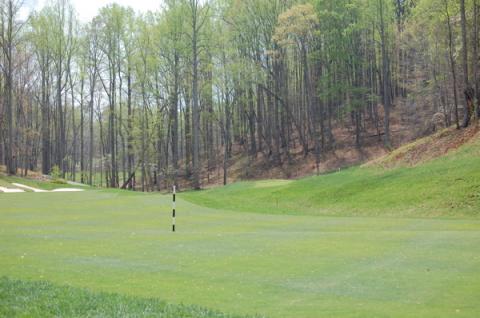
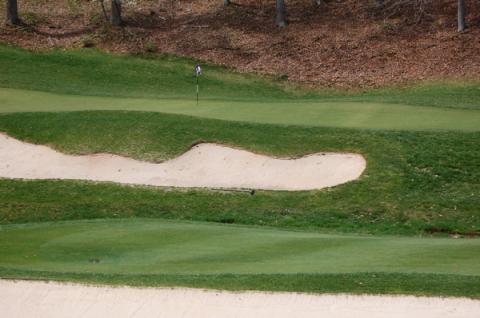
Short and left of the 3rd green leaves a delicate lob wedge to a narrow green.




